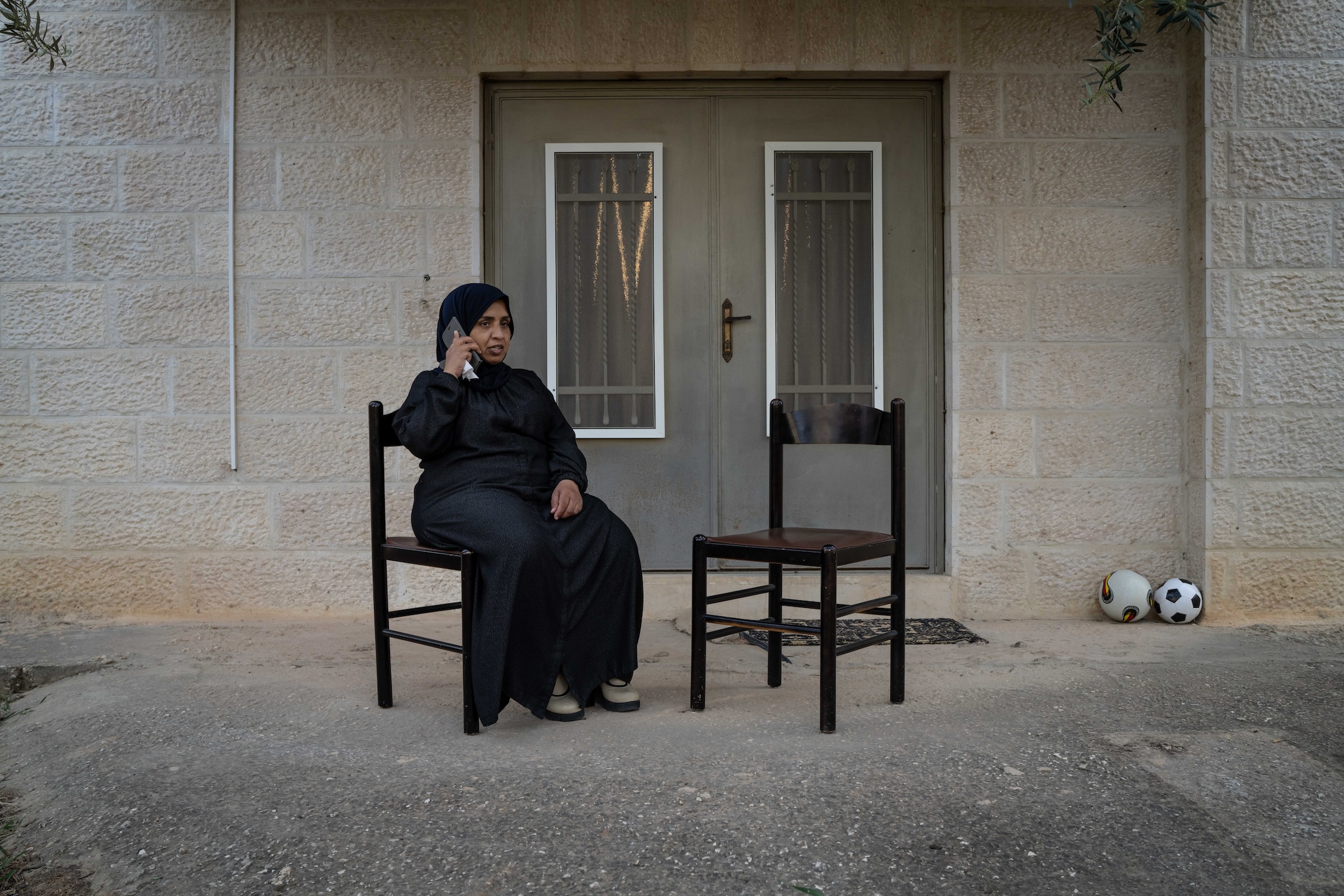All images © Samar Hazboun
Palestinian photographer Samar Hazboun records quietly devastating moments of enforced leave
Limbo: a situation in which one seems to be caught between two stages and it is unclear what will happen next. This term aptly describes the current reality for the people in Samar Hazboun’s Stuck on Hold, Gazans now living in West Bank cities such as Bethlehem and Ramallah. Following the bombardment of Gaza, which began on 07 October 2023 after Hamas killed 1200 people in Israel and took more than 240 hostage, according to Israeli officials, Gazans outside the Gaza Strip have been mired in a state of suspension.
Until late last year, around 18,500 Gazans held daily entry permits to enter Israel for work, where salaries are up to 10 times that in the Strip. Those permits were frozen on 11 October 2023 – along with the permits of 150,000 West Bank workers – leaving some 10,000 Gazans in limbo. A senior Palestinian Authority official has said half of these residents fled to the West Bank, the rest were detained by Israel or sent back to Gaza.
Hazboun is following a group affected by different circumstances but whose fate is nonetheless similar – Gazans originally on sick leave. Owing to their straitened situation, Gazans often go to the West Bank for medical treatment but, as the Israeli bombing worsened post-07 October, these temporary trips turned into indefinite stays. Legally those affected are not allowed to work, and doing so illegally is very risky. Instead they are left waiting, dependent on aid and community support. “Many of them don’t leave the house and don’t move around,” Hazboun tells me. “They’re scared of being caught and sent back together or deported [elsewhere]. So they cannot work.” They live in fear of being caught and of the legal repercussions.
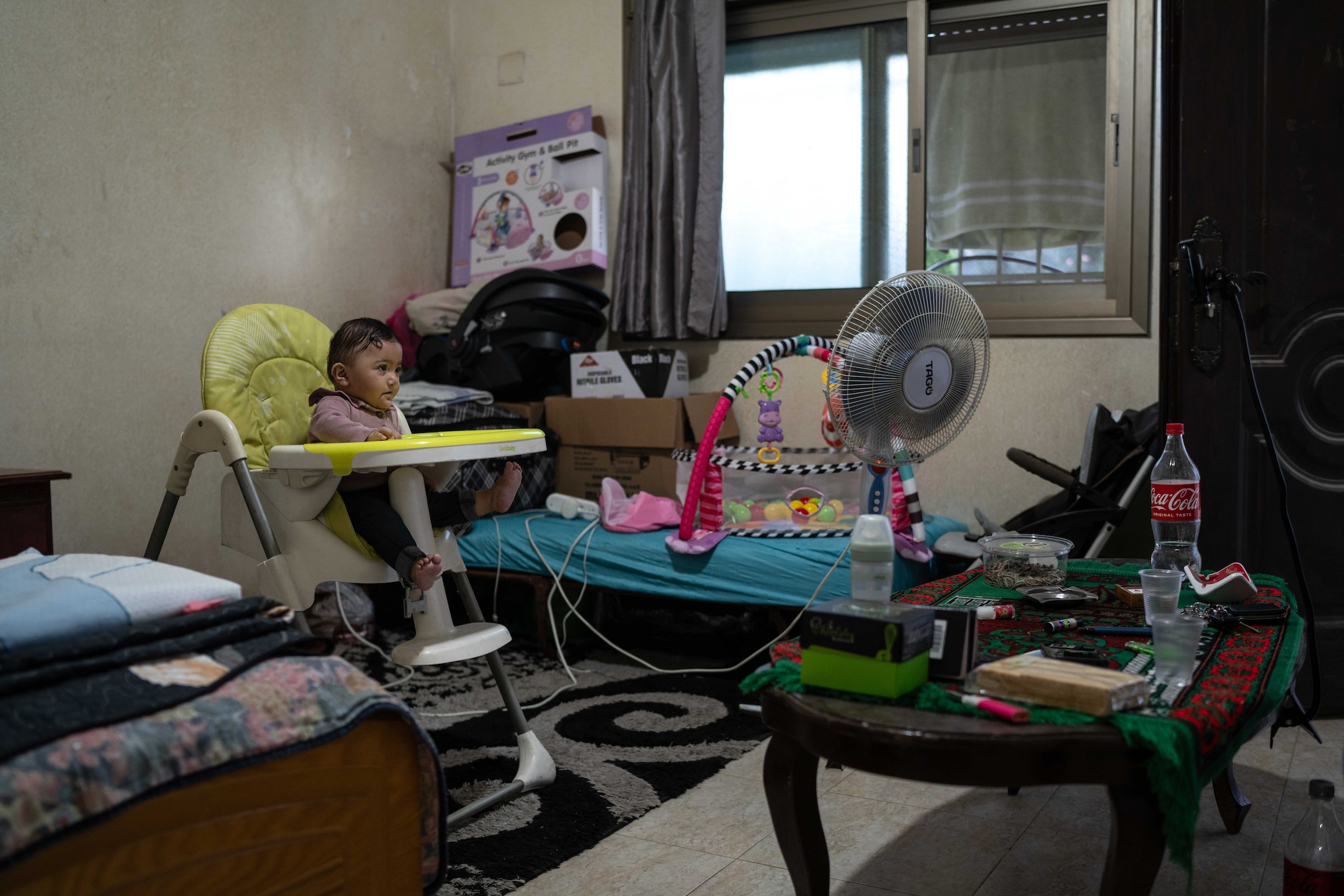
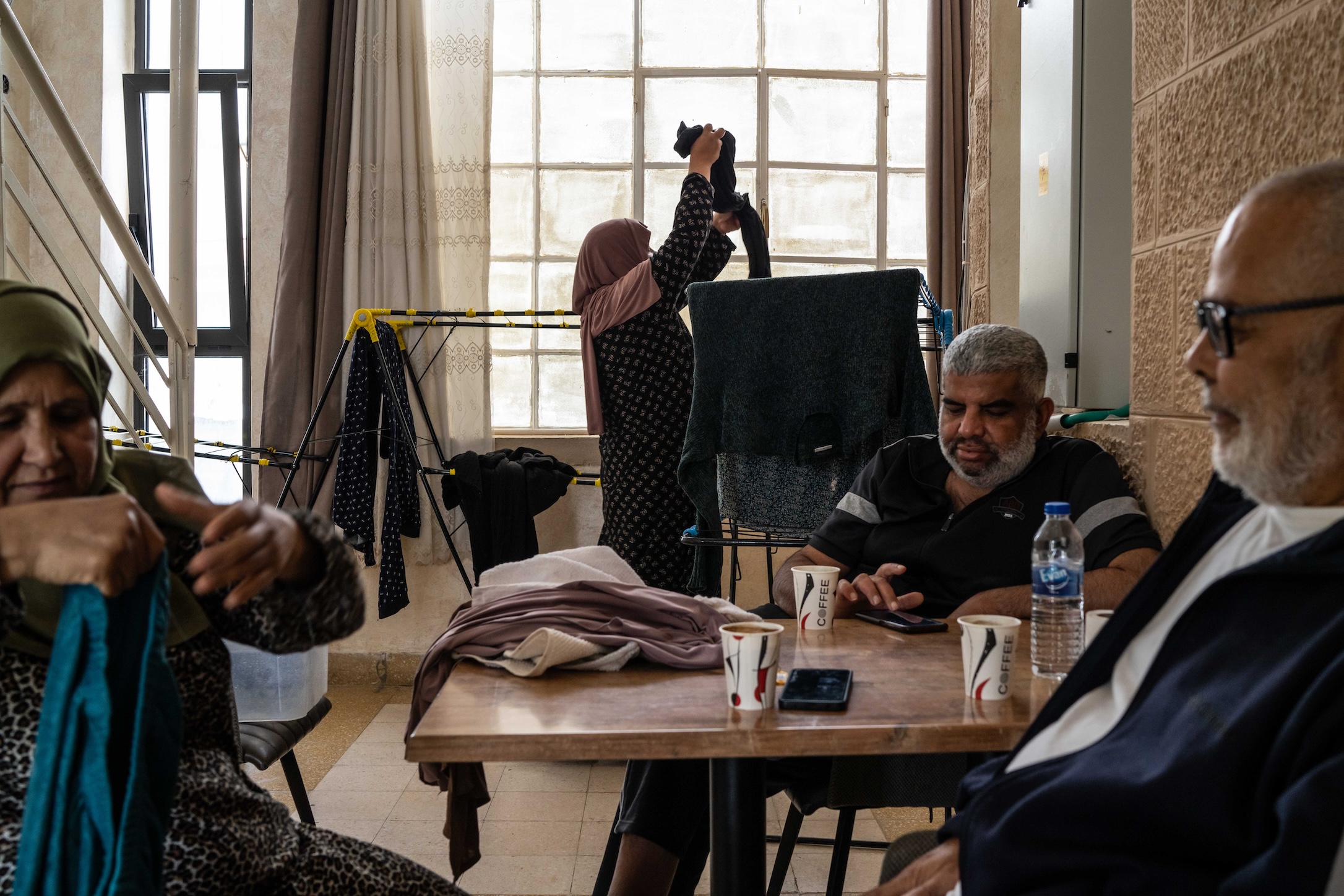
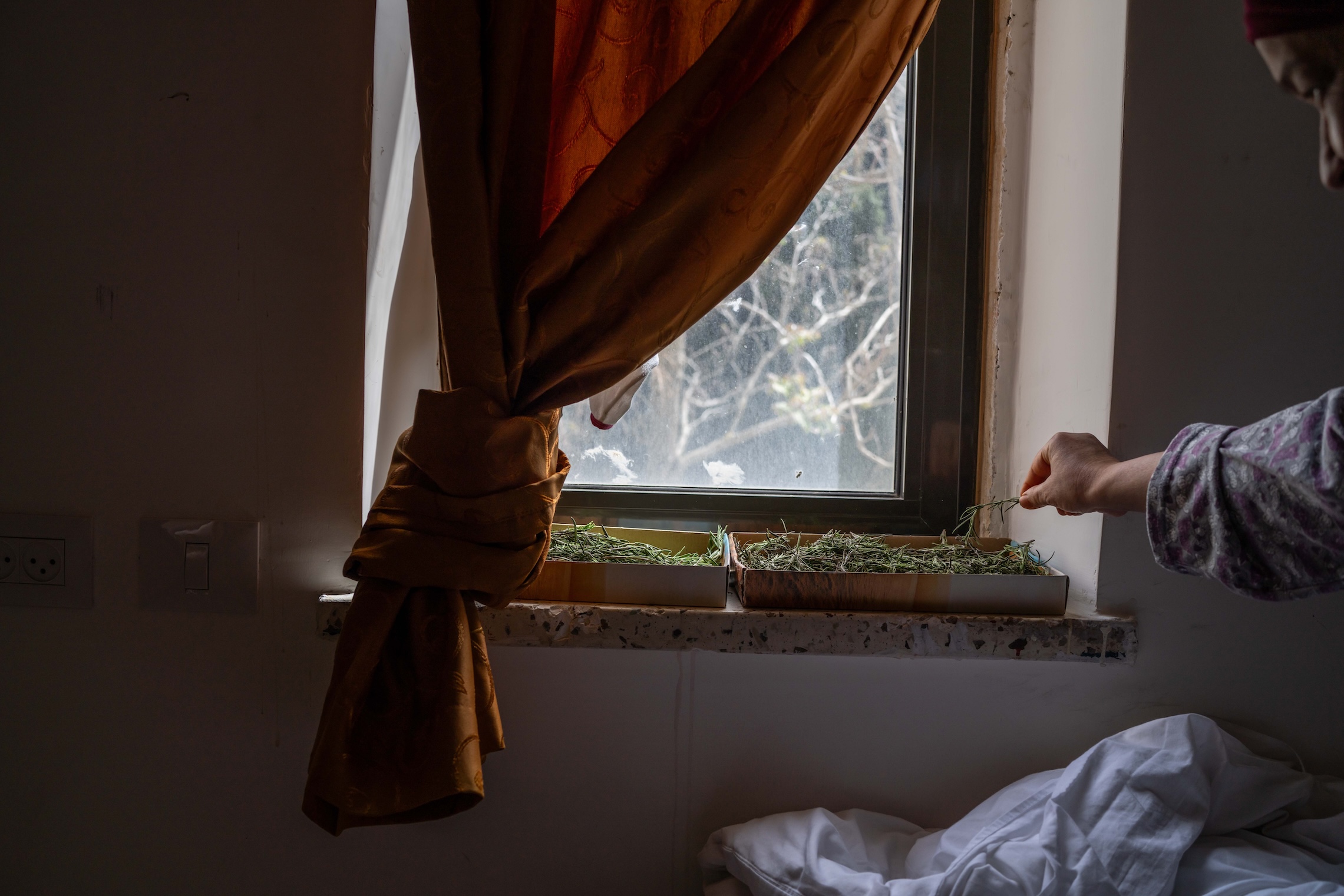
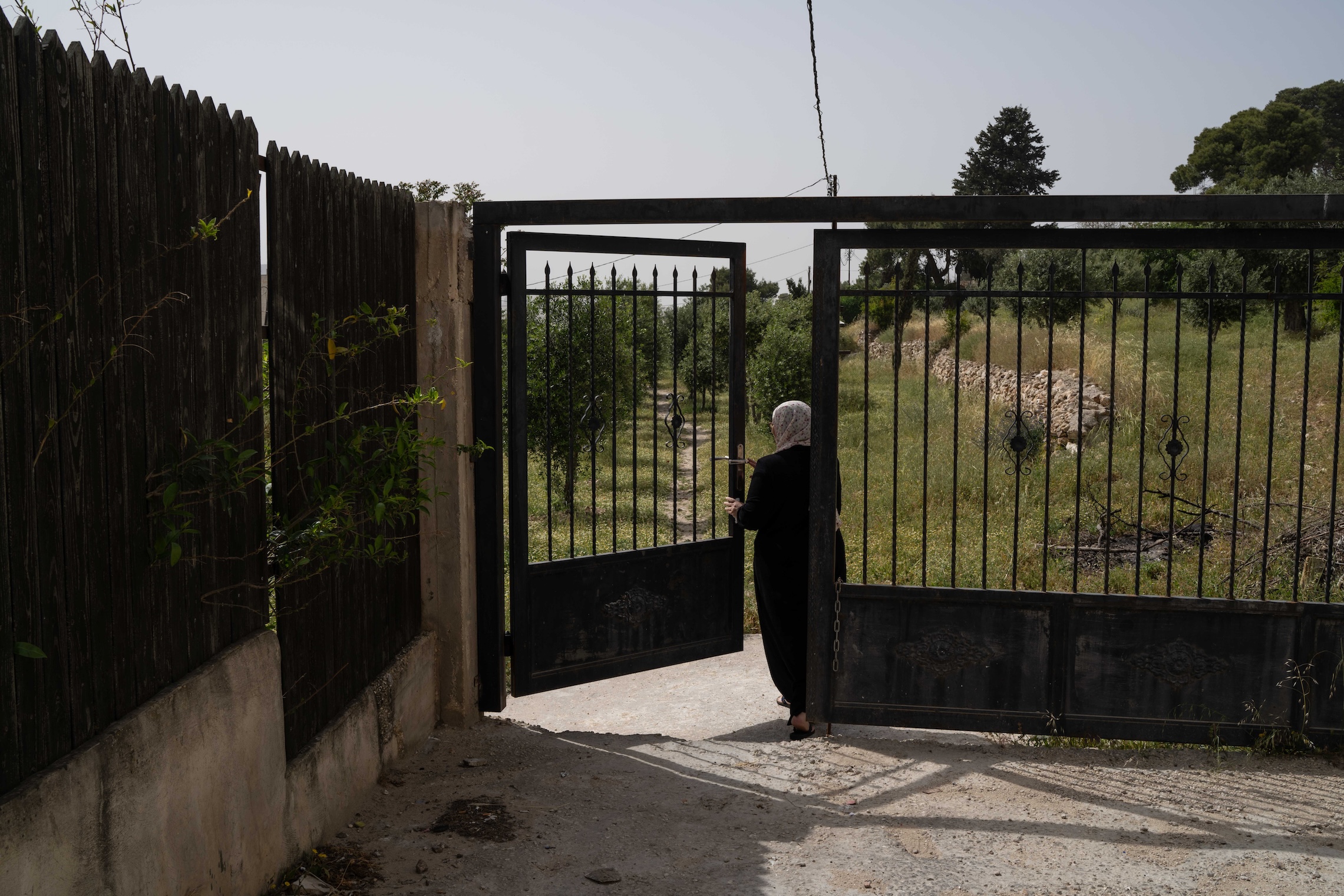
“Their lives are literally on hold and most of them are glued to their phones”
Born in Jerusalem, raised in the West Bank, and based in Bethlehem, Hazboun regularly works for publications such as The New York Times and The Intercept, is a grantee of the Magnum Foundation, the Arab Fund for Arts and Culture, and the Prince Claus Fund, and has worked as Agence France-Presse’s photo editor for West Asia and North Africa. In her photography she focuses on Palestinian lives but, while she often hones in on women’s issues, she started Stuck on Hold to “hold witnesses to what is happening”.
The media cacophony often reduces Gazans and Palestinians to statistics and numbers, she points out, but their lives have been profoundly affected, and their perspectives should be heard. “Each one of them has a story,” she says. Hazboun lost a photographer friend in Gaza, Majd Arandas, and felt saddened “that the world didn’t know what a beautiful person [he] was. And gradually I started seeing that Gazans are looked at or are seen in a certain light”. Stuck on Hold includes Um Na’im, for example, a nurse who arrived in the West Bank with her nine-year-old son for his heart surgery. During her ongoing stay she has lost all her other children to an Israeli airstrike, in a devastating but all-too-common plight for Gazans. Her husband was killed in the 2014 war. Similarly, 33-year-old Faris left Gaza on the eve of the 2023 war because his newborn daughter needed emergency surgery. He now longs for his wife, who he and the baby have not seen since.
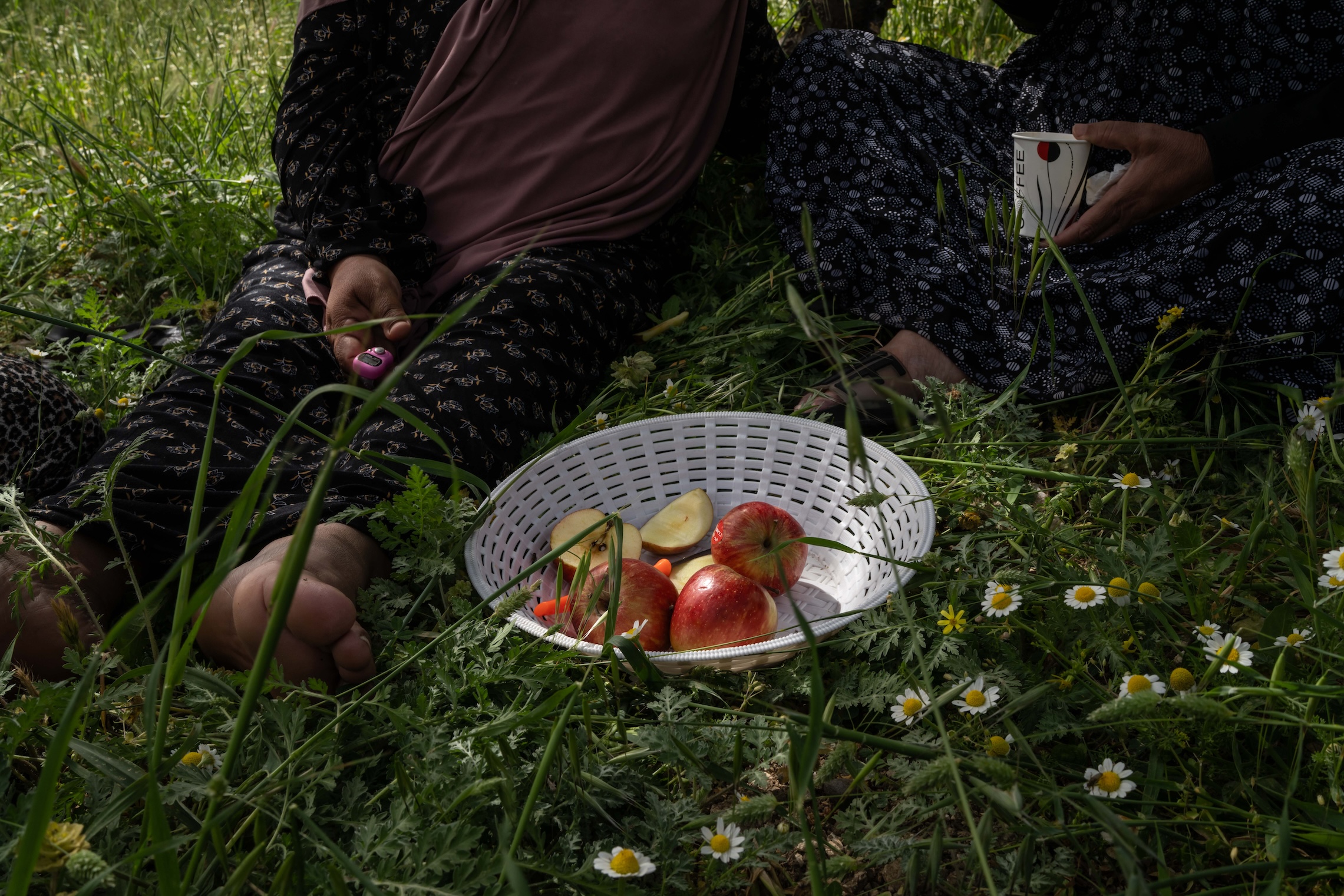
In shared spaces, the forcibly displaced Gazans find solace in each others’ company, and even some necessary light-heartedness in the absurdity of their predicament. One image shows seemingly simple domesticity, a group sitting in a hostel, one woman hanging laundry in the background. In fact it is unusual for women to carry out housework among men, or in the public eye. “They [have to] do everything in front of each other because… they just have their bedrooms and then everything else has to be in shared spaces,” Hazboun says.
Similarly, Faris’ role of single father is unusual – and at times hard to bear – because his eight-month-old daughter should be with her mother. Hazboun’s images show Faris playing with his giggling baby, offering her bountiful affection, but he has had to learn everything about caring for an infant, and still worries “there are things that a man cannot fully give an infant like this”.
Domestic roles aside, in general “nothing much is happening,” says Hazboun. “Their lives are literally on hold and most of them are glued to their phones.” Unable to fill their days with their usual occupations, the displaced Gazans are preoccupied with menial chores, or in a state of suspended animation, waiting for news of a resolution and clinging to the hope of returning to Gaza. In many images, Um Na’im is on her phone, not “living in the now [but] in the future”.
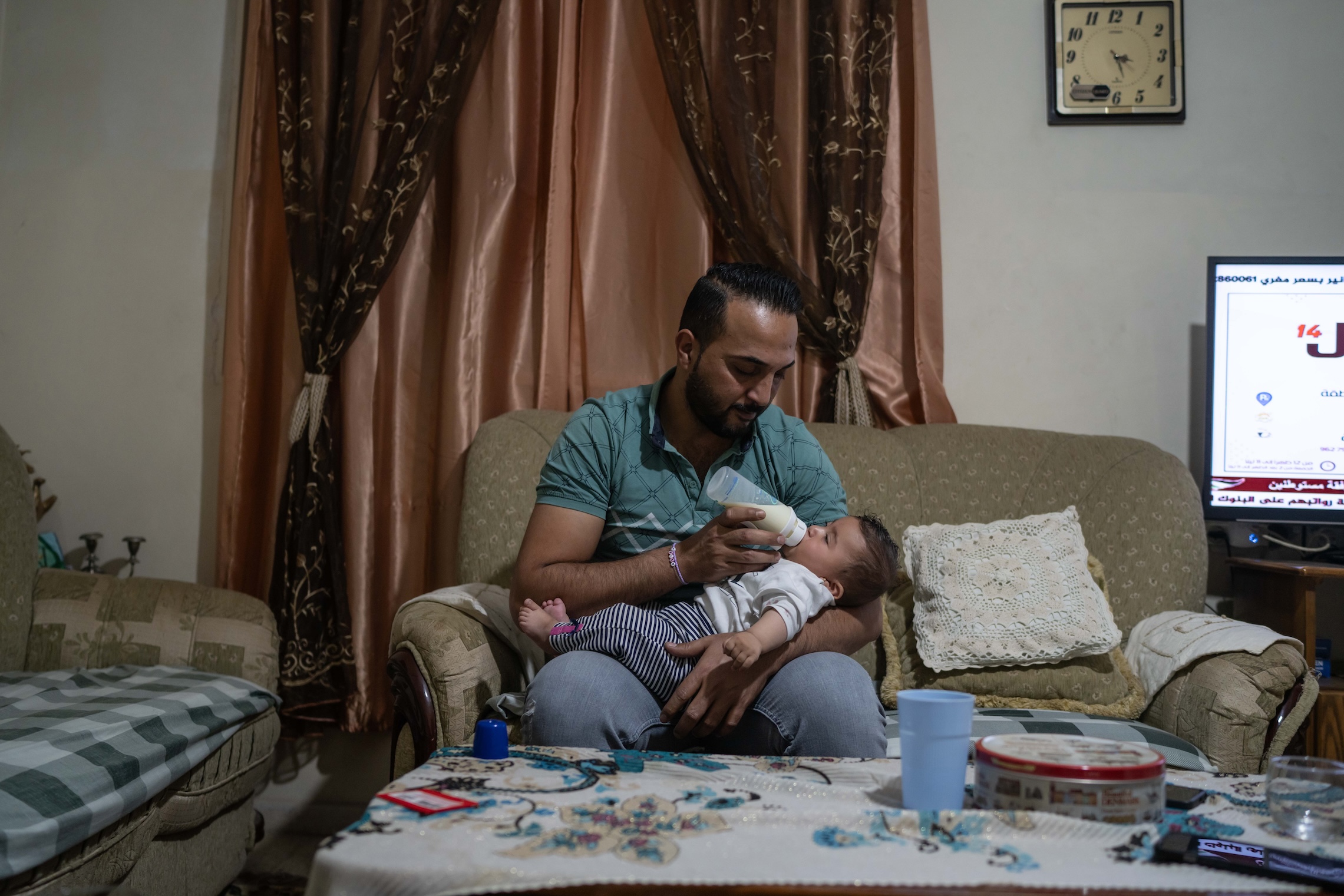
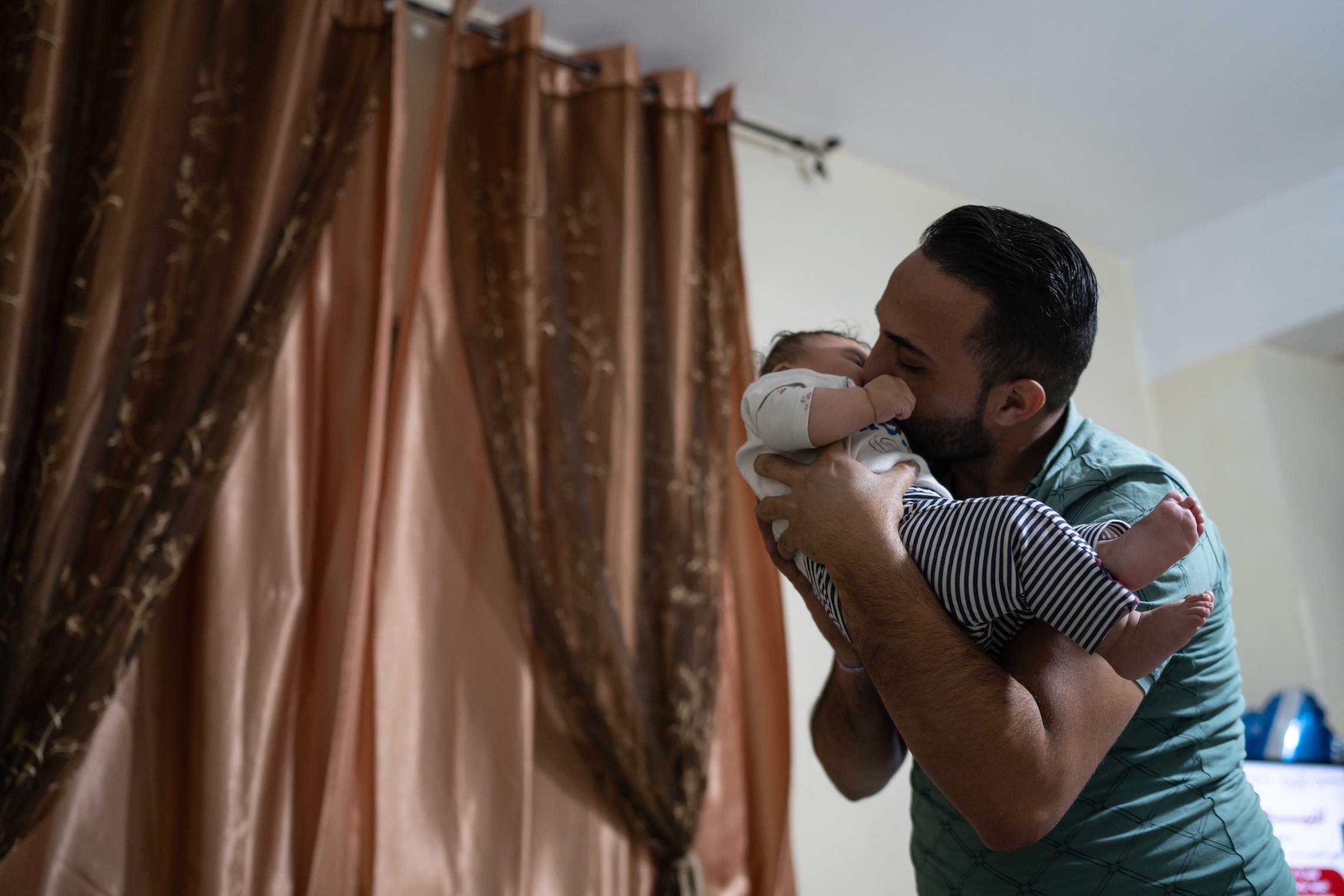
Hazboun visits those she photographs every few days, but does not always take her camera. Often she is hanging out, talking, observing, and delivering donations of food and baby clothes. Initially it was not easy to convince the Gazans to be in front of the camera. “A lot of them don’t want someone to take advantage of their images,” says Hazboun. “Today, with social media, people are a little scared.”
Now she has built a rapport and says the displaced Palestinians appreciate her images as a sombre memento, showing what they have been through, where they have lived, and how their lives have changed. Legal restrictions, the constant spectre of deportation, and concerns for their families loom large, casting deep and very dark shadows. Hazboun photographs Um Na’im in solitude with muted lighting; in one image, the widow sits facing an empty chair, a phone raised to her ear. The scene is theatrically symbolic but very real.
Stuck on Hold shows people trapped in a wretched time, but Hazboun says life in this region was always fraught. A Palestinian’s daily commute is many times longer than that of the average commuter elsewhere, and it includes multiple checkpoints and strictly prescribed routes. “There are many restrictions imposed on us and now, after [October 2023], it’s become even more complicated to move between cities,” says Hazboun.

She acknowledges her relative privilege as a photographer able to pursue her work, but says careers have a very different place in Palestinian lives. “Even if we work, that doesn’t mean that we’re happy or that doesn’t mean that we’re satisfied,” she points out. “People are miserable in many situations… just trying to make ends meet. We don’t have the luxury to start something and grow big. It’s not possible here within the circumstances. So everything is limited.”
Despite the horrors of war, Palestinians find humour and meaning, and, as Hazboun continues with Stuck on Hold, it is the latter she finds compelling. She is uncovering stories of resilience and faith. “I’m getting to know [the subjects] better as I’m finding more of them who are willing to speak about spirituality,” she explains. “I’m going to go to this spiritual place, [asking] how they’re continuing, what their belief system is, and what are the moments that actually got them out of these terrible, terrible things that have happened to them.”

